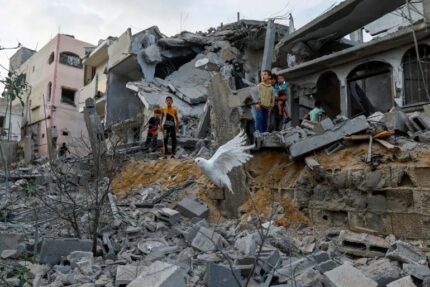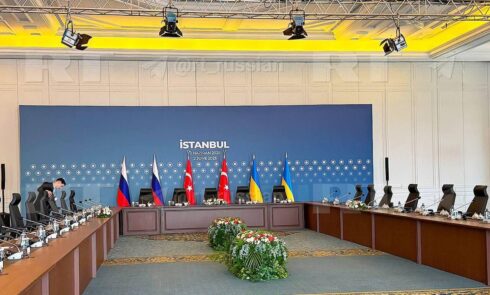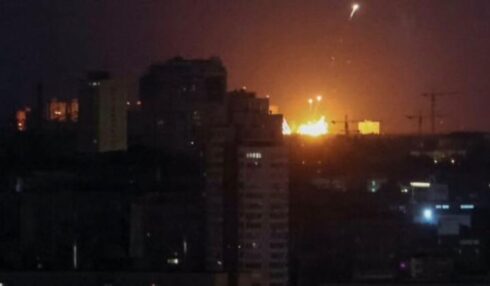Israel launched a series of airstrikes on the Gaza Strip early Tuesday in what has been described as the most extensive military operation since a ceasefire took effect in January. According to Gaza’s health ministry, at least 200 people have been killed, with the number expected to rise as rescue operations continue. The Gaza Civil Defense agency has reported that most of the casualties are women, children, and the elderly.
Strikes were recorded across multiple locations, including northern Gaza, Gaza City, and the Deir al-Balah, Khan Younis, and Rafah areas in central and southern Gaza. Hospitals have struggled to cope with the influx of casualties, with reports indicating that medical facilities are already overwhelmed due to previous bombings and the ongoing humanitarian crisis. Some medical officials claim the true death toll could be even higher, as many bodies remain trapped under rubble.
Israel Justifies Strikes as Ceasefire Talks Stall
Israeli Prime Minister Benjamin Netanyahu defended the airstrikes, stating that they were necessary due to stalled ceasefire negotiations and Hamas’ refusal to release hostages. In a statement, Netanyahu declared that Israel would act against Hamas “with increasing military strength” and that the operation was open-ended, with the potential for further escalation.
Israeli officials insist that the strikes targeted Hamas strongholds, claiming that the group continues to use civilian areas for military operations. The country’s ambassador to the United Nations reinforced this stance, stating, “Nothing will stop us from fighting to free our hostages… We will show no mercy against our enemies while our hostages languish in Hamas terror tunnels.” Military sources indicate that the current offensive could extend beyond airstrikes, raising fears of a full-scale ground invasion.
Hamas Condemns Israel’s Actions, Warns of Consequences
Hamas has strongly condemned the renewed airstrikes, accusing Netanyahu of deliberately breaking the ceasefire in order to maintain his political coalition. A senior Hamas official, Izzat al-Risheq, warned that the new Israeli offensive “jeopardizes the fate of the remaining hostages” and could lead to further instability in the region.
The militant group has also accused Israel of using the hostage crisis as a pretext for war rather than negotiating in good faith. Hamas claims that Netanyahu’s government is facing increasing internal pressure from Israeli citizens who have been demanding the return of hostages and an end to the ongoing conflict. The escalation, according to Hamas leaders, is an attempt to shift blame for the government’s failures and prolong military action.
International Community Reacts
The White House confirmed that it was briefed in advance about Israel’s planned attack and has expressed support for the operation. U.S. officials have reiterated that Hamas had the option to extend the ceasefire by releasing hostages but chose to reject the proposals. White House spokesperson Karoline Leavitt stated, “Those who seek to terrorize Israel and the U.S. will see a price to pay.”
Despite U.S. support, global reaction has been mixed. Some European and Middle Eastern nations have called for an immediate cessation of hostilities, warning that a return to full-scale war could lead to further humanitarian disaster. The United Nations has also expressed concern over the rising civilian death toll, urging all parties to exercise restraint and return to diplomatic negotiations.
Uncertain Future as Conflict Escalates
The sudden escalation has shattered a period of relative calm during the Muslim holy month of Ramadan, raising fears that a prolonged war could once again devastate Gaza and its people. The continued airstrikes and lack of diplomatic progress have intensified internal divisions within Israel, with mass demonstrations planned in protest of Netanyahu’s handling of the war and the hostage situation.
With Gaza’s hospitals overwhelmed and civilian casualties mounting, international pressure is likely to grow in the coming days. However, with Israel signaling that its operation will continue and Hamas vowing to retaliate, the likelihood of a peaceful resolution remains uncertain. As the conflict deepens, the people of Gaza continue to suffer the consequences of an ongoing war that has already left tens of thousands dead and displaced many more.














